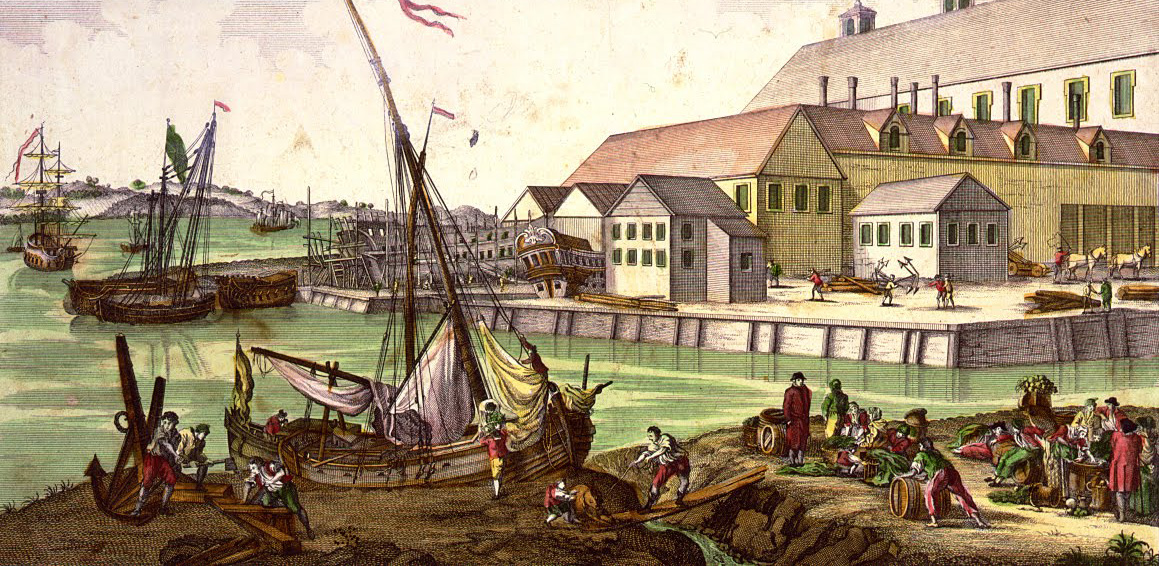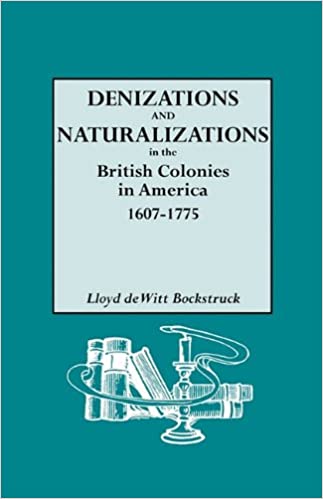
Sources of Colonial Naturalization Records
During the colonial period, according to law, an Englishman was a person of English descent born on English soil. The English colonies qualified as “English soil,” so an Englishman who emigrated to the colonies could transfer his citizenship to his offspring. (On the other hand, the son of an Englishman born in Holland, for example, was not a citizen and had to undergo naturalization in order to acquire realty and transfer it to his heirs.)
After the Crown opened up its colonies to the foreign born in order to increase the colonial labor supply, the issue of naturalization became increasingly important. Why? Although naturalization did not confer political rights upon naturalized persons, it was critical for property ownership and the conferring of property rights to one’s offspring. For this reason thousands of Palatine Germans, French Huguenots, Scots, and Irish, as well as Dutch, Spanish, Danes, Norwegians, and other immigrants availed themselves of the opportunity to be naturalized.
There were two avenues available to foreigners who desired to become English citizens: (1) naturalization per se was conferred by act of Parliament or colonial legislature; (2) denization was conferred by the King or his agent, the colonial governor.
As a body of records, naturalization and denization records are of considerable value, but, until recently, were very difficult to access. At a minimum these records provide the person’s name and date and colony of naturalization. In many cases, they also state the person’s county of residence, date of birth, country of birth, occupation, religion (mostly for Jews), or the name of a family member. Despite their value, colonial naturalization records have been under-utilized because they are widely dispersed. Thanks to the late Lloyd Bockstruck, this problem is rectified.
In Denizations and Naturalizations in the British Colonies in America, 1607-1775, Mr. Bockstruck has assembled every reference to a colonial naturalization or denization known to exist. The result is an alphabetically arranged list of about 13,000 naturalizations compiled from published sources and expanded and improved by the examination of source material not previously available to scholars. Researchers should also consult the index to the volume, which lists all persons mentioned in the records other than the new citizens themselves. Following is a list of colonial jurisdictions that yielded the naturalization or denization records included in the volume: England, Connecticut, Delaware, Florida (East and West), Georgia, Jamaica, Maryland, Massachusetts, New Hampshire, New Jersey, New York, North Carolina, Nova Scotia, Pennsylvania, Rhode Island and Providence Plantations, South Carolina, Virginia, and Quebec.
We would be remiss, finally, if we did not mention the excellent Introduction to this new work. In it, the author describes the twists and turns in naturalization law and policy during the colonial period. Also found in the Introduction is a comprehensive bibliography of the naturalization literature itself. These features round out a book that is destined to become synonymous with the research in colonial naturalization records.
Of Related Interest . . .
- Guide to Naturalization Records in the U.S.
State by state, county by county, city by city, the Guide to Naturalization Records in the U.S. identifies all repositories of naturalization records, systematically indicating the types of records held, their dates of coverage, and the location of original and microfilm records. The GUIDE also pinpoints the whereabouts of federal court records in all National Archives facilities, and it identifies every single piece of information on naturalizations that is available on microfilm through the National Archives or the Family History Library System, including the call numbers used by each institution. View Book Details
- South Carolina Naturalizations, 1783-1850
This work contains abstracts of the records of approximately 7,500 persons who were naturalized in the state of South Carolina between 1783 and 1850. In general, some or all of the following data is evident: name, country of origin, place of residence in the U.S., occupation, date of arrival in the U.S., and date of application or admission. View Book Details




